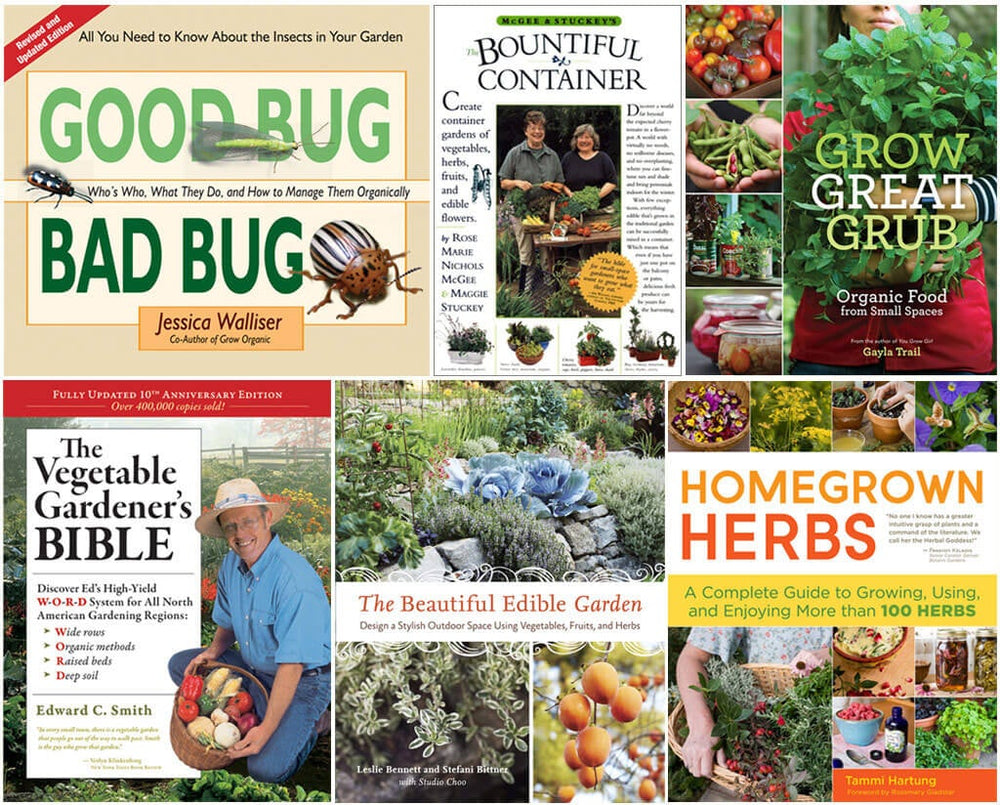
New gardeners have one thing in common: They have lots of questions. If you don't have a neighbor or friend who gardens, you can find the answers you need by stocking your home library with a few key books.
See, I've been growing things my whole life and writing about gardening for 25-plus years. As you might imagine, I've collected quite a few gardening books along the way. Some I turn to again and again, while others gather dust on my bookshelves.
These six don't get much down-time, and they're books I think every new gardener should consider. On the whole, they provide the basic info you need to start growing your own food. You'll keep reaching for them year after year (as I do) for tips and techniques to help you meet whatever challenges crop up in the garden.

The Vegetable Gardener's Bible
By Edward C. Smith
This is the #1 book I purchase to give to new gardeners. I personally use it so much during the year that it doesn't even have a place on the bookshelf—the pages are packed with fantastic information related to garden planning and arrangement. (I'm especially a fan of his wide raised bed method, which teaches you to grow more in less space.) Smith shares his own experiences with composting, mulching, and organic pest control so that you're getting practical, dirt-under-the-fingernails advice. The encyclopedia section includes detailed crop-by-crop recommendations for sowing, growing, and harvesting. I refer to this section daily during planting season and weekly as my crops grow.

Good Bug Bad Bug: Who's Who, What They Do, and How to Manage Them Organically
By Jessica Walliser
A picture is worth a thousand words—and nowhere is that more true than with insect identification. If you have ever stood in the garden looking at a bug and wondering if it was a good guy or a bad guy, you want this book. (It's the second one I gift-give to new gardeners). It has a ring binding so it lays flat, and pages are waterproof, so you can carry it right into the garden. Walliser details—in words and photos—what kind of damage each pest can cause, then suggests organic ways to prevent and control them. The beneficial insects section is a "who's who" of the garden heroes of the bug world, explaining ways to both attract them to your garden and keep them there.

Homegrown Herbs: A Complete Guide to Growing, Using, and Enjoying More than 100 Herbs
By Tammi Hartung
If you're a budding herbalist, this is the book for you. It's packed with practical advice for growing herbs, including specific garden plans you can easily adapt to your own yard or patio. The author walks you through the process of harvesting and preserving, and the wonderful how-to photographs make every project do-able. Hartung also shares recipes for creating medicinal tinctures and salves, as well as seasoning blends and tasty recipes (think ginger pumpkin soup and catnip pesto with pasta).

McGee & Stuckey's Bountiful Container: Create Container Gardens of Vegetables, Herbs, Fruits, and Edible Flowers
By Rose Marie Nichols McGee and Maggie Stuckey
Don't let limited growing space keep you from becoming a gardener. This book shows you how to reap a bountiful harvest from containers. The authors share what they've learned by tending a variety of edible plants in a host of different containers, ranging from found objects to traditional pots, window boxes, and hanging baskets. They cover the basics (soil, fertilizer, watering), plus give seasoned advice on things like how much to plant to feed your family and (my favorite) the minimum depths of soil you need in your containers to grow specific vegetables.

Grow Great Grub: Organic Food from Small Spaces
By Gayla Trail
If you live in the city, it can be tough to figure out how to tailor traditional gardening techniques to your particular situation. This books shares clever ways to adapt and succeed as an urban gardener, whether your growing space consists of a few containers on your balcony, a small roof bed, or even just a sunny windowsill. Trail's commitment to organic practices shines through in advice on fertilizing, composting, and pest control. She also includes yummy recipes like root vegetable fries and cold cucumber soup, and shares advice on how to preserve your harvest.

The Beautiful Edible Garden
By Leslie Bennett and Stefani Bittner
It can be hard for beginning gardeners (or even experienced ones, for that matter) to find ways to incorporate edible plants into existing landscapes. This book bursts with inspiring ideas for every part of your yard—no surprise, since the authors are landscape designers who specialize in creating gorgeous edible gardens. You'll find suggestions for companion plantings that might surprise you, along with photographs of actual gardens that blend edibles with eye-catching ornamentals. As a fun bonus, there are also creative projects for making table arrangements and wreaths using the plants you grow.
Want more? Check out these gorgeous coffee table books about gardening, plus four fun gardening books for kids.
by Julie A. Martens
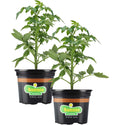
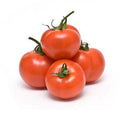


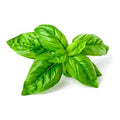 Herbs
Herbs
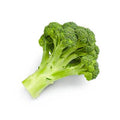 Vegetables
Vegetables
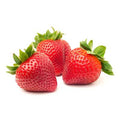 Fruit
Fruit
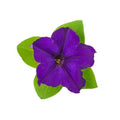 Flowers
Flowers
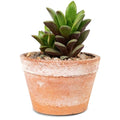 Succulents
Succulents
